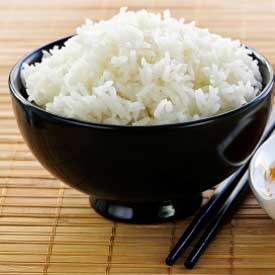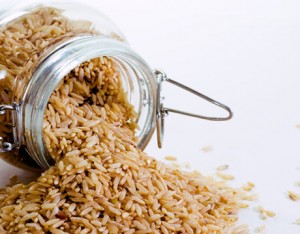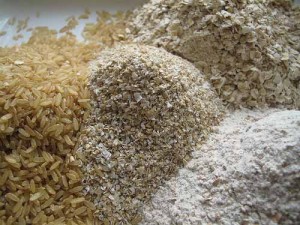by Jose Antonio PhD FISSN. I really like white rice. You know the sticky kind that you can pick up with your fingers and throw down the gullet. I mean 1.4 billion Chinese  couldn’t all be wong. I’ve heard a million times how brown rice, which tastes like tree bark mixed with bread crust dipped in dog food, is soooo much better than the white variety. Growing up eating rice the way most families consume potatoes and bread, I rarely go a day without consuming some white stuff. So is the white stuff so bad? Is it like eating fried Twinkies or Oreos? Well grasshopper, empty your cup of tea and follow me down the path of truth and enlightenment. LOL. Actually, just read the rest of this silly article and let’s hope you’re entertained as well as edified.
couldn’t all be wong. I’ve heard a million times how brown rice, which tastes like tree bark mixed with bread crust dipped in dog food, is soooo much better than the white variety. Growing up eating rice the way most families consume potatoes and bread, I rarely go a day without consuming some white stuff. So is the white stuff so bad? Is it like eating fried Twinkies or Oreos? Well grasshopper, empty your cup of tea and follow me down the path of truth and enlightenment. LOL. Actually, just read the rest of this silly article and let’s hope you’re entertained as well as edified.
One study stated that “higher consumption of white rice is associated with a significantly increased risk of type 2 diabetes, especially in Asian (Chinese and Japanese) populations.”1 Yikes, that’s me! Does being a ‘Pacific Islander’ count? Also, “consumption of brown rice in place of white can help reduce 24-h glucose and fasting insulin responses among overweight Asian Indians.”2 Shitfire I’m glad I’m not an overweight Asian Indian. Either way, that study was an acute one. And then we have this extensive case-control study which looked at the association between white rice-based food consumption and the risk of ischemic stroke in a southern Chinese population. Information on diet and lifestyle was obtained from 374 incident ischemic stroke patients and 464 hospital-based controls. They found that the average weekly intake of rice foods appeared to be significantly higher in cases than in controls. Increased consumption of cooked rice, congee, and rice noodle were associated with a higher risk for ischemic stroke after controlling for confounding factors. So is this evidence of a link between habitual rice food consumption and the risk of ischemic stroke in Chinese adults?3 Maybe.
Now keep in mind what exactly a case control study is. It is a design used in epidemiological research. Basically what scientists do is compare subjects who have a certain condition (e.g. high blood pressure) with those who do not (e.g. are normal blood pressure) and then identify the factors that may lead to that condition. Folks aren’t given a treatment per se. The categories are statistical ones, not biological ones. This study design is far inferior to the gold standard of science, the randomized controlled trial in which subjects are randomized to a ‘treatment’ or ‘placebo/control’ group. Thus, there is an actual intervention to see if a ‘treatment’ has an effect and minimizes bias.
So indeed it is true that epidemiologic studies have suggested that higher consumption of white rice (WR) is associated with increased risk for type 2 diabetes mellitus. And short term data shows that the glucose and insulin response is lower with brown vs white rice. What if you actually substitute white rice with brown rice, should we not then see a benefit? Especially if done over a period of several months?
Let’s see what this particular study showed. A total of 202 middle-aged adults with diabetes or a high risk for diabetes were randomly assigned to a white rice (WR) or brown rice (BR) group and consumed the rice ad libitum (free access to rice) for 4 months. Metabolic risk markers were measured. So what happened? Did the WR group get ill? Did the BR group become healthier than a triathlete? They basically found no between-group differences for any markers. However, blood LDL cholesterol concentration decreased more in the WR group compared to the BR group; this effect was observed only among participants with diabetes. On the other hand, diabetics had a greater reduction in diastolic blood pressure in the BR group compared to the WR group. So what’s the net-net? Nothing! There’s in essence no difference.4
 Most non-Asians consume rice about as frequently as a homeless man in Miami takes long bubble baths. I mean have you ever seen a Chinese guy ask for brown rice? When an Asian orders brown rice instead of white, it would be like the Dallas Cowboy Cheerleaders cheering for the Washington Redskins. Ain’t gonna happen. So for my brothas and sistas who are of the ‘Asian’ denomination (hey, that rhymes), go ahead and eat plenty of white rice. But, and this is a big but, not the J-Lo big butt, but the but with just one ‘t.’ Exercise like you’re being chased by an angry Doberman Pinscher! If you exercise hard enough, long enough and frequently enough, I seriously doubt that eating brown or white rice will make a helluva difference.
Most non-Asians consume rice about as frequently as a homeless man in Miami takes long bubble baths. I mean have you ever seen a Chinese guy ask for brown rice? When an Asian orders brown rice instead of white, it would be like the Dallas Cowboy Cheerleaders cheering for the Washington Redskins. Ain’t gonna happen. So for my brothas and sistas who are of the ‘Asian’ denomination (hey, that rhymes), go ahead and eat plenty of white rice. But, and this is a big but, not the J-Lo big butt, but the but with just one ‘t.’ Exercise like you’re being chased by an angry Doberman Pinscher! If you exercise hard enough, long enough and frequently enough, I seriously doubt that eating brown or white rice will make a helluva difference.
So next time you’re at PF Changs, go for the white stuff:-)
References for the Science Nerds
[1] Hu EA, Pan A, Malik V, Sun Q: White rice consumption and risk of type 2 diabetes: meta-analysis and systematic review. Bmj 2012, 344:e1454.
[2] Mohan V, Spiegelman D, Sudha V, Gayathri R, Hong B, Praseena K, Anjana RM, Wedick NM, Arumugam K, Malik V, Ramachandran S, Bai MR, Henry JK, Hu FB, Willett W, Krishnaswamy K: Effect of Brown Rice, White Rice, and Brown Rice with Legumes on Blood Glucose and Insulin Responses in Overweight Asian Indians: A Randomized Controlled Trial. Diabetes technology & therapeutics 2014.
[3] Liang W, Lee AH, Binns CW: White rice-based food consumption and ischemic stroke risk: a case-control study in southern China. Journal of stroke and cerebrovascular diseases : the official journal of National Stroke Association 2010, 19:480-4.
[4] Zhang G, Pan A, Zong G, Yu Z, Wu H, Chen X, Tang L, Feng Y, Zhou H, Li H, Hong B, Malik VS, Willett WC, Spiegelman D, Hu FB, Lin X: Substituting white rice with brown rice for 16 weeks does not substantially affect metabolic risk factors in middle-aged Chinese men and women with diabetes or a high risk for diabetes. The Journal of nutrition 2011, 141:1685-90.
Bio – Jose Antonio PhD – Science guy, paddler, avid MMA fan, www.theissn.org


 ).
).



